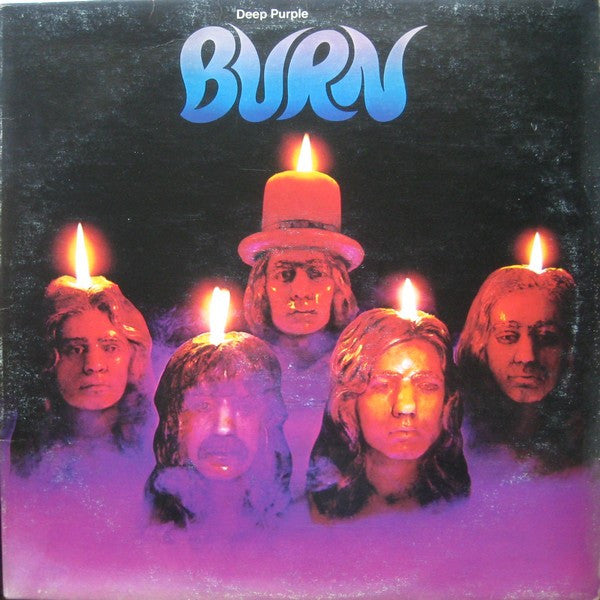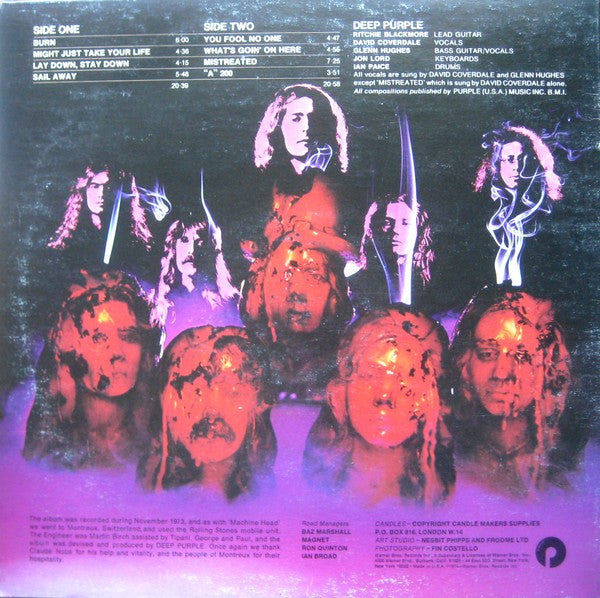1
/
of
2
SoCo-Records
Deep Purple – Burn (used)
Deep Purple – Burn (used)
Regular price
$5.00 USD
Regular price
Sale price
$5.00 USD
Unit price
/
per
Shipping calculated at checkout.
Couldn't load pickup availability
Burn by Deep Purple (1974)
Burn is the eighth studio album by the English rock band Deep Purple, released in February 1974. It marked a significant shift in the band's lineup and musical direction, introducing the "Mark III" era of Deep Purple.
Key Aspects:
- New Lineup: Burn was the first album to feature the lineup of David Coverdale on lead vocals and Glenn Hughes (from the band Trapeze) on bass and vocals, replacing Ian Gillan and Roger Glover, respectively. They joined existing members Ritchie Blackmore (guitar), Jon Lord (keyboards), and Ian Paice (drums).
- Musical Style: The album primarily delivers hard rock and blues rock, similar to their previous successful album Machine Head. However, it also incorporated elements of funk rock, which became more prominent in subsequent albums of the Mark III and Mark IV eras.
- Album Highlights: The album features the powerful title track "Burn," which became a concert opener for the band for two years. Other notable tracks include "Might Just Take Your Life," "Lay Down, Stay Down," "Sail Away," and the bluesy "Mistreated," featuring Coverdale's vocals.
- Commercial Success: Burn was a commercial success, charting in 13 countries and reaching number three in the UK and number nine in the US. It was certified Gold in several countries, including the UK and US.
- Cover Art: The album's distinctive cover art features burning candles shaped like the faces of the band members, photographed by Fin Costello.
- Legacy: Burn is a classic album in the Deep Purple discography, showcasing the Mark III lineup's talent and chemistry. It remains a fan favorite, recognized for its energetic hard rock tracks and the vocal talents of Coverdale and Hughes.
- Internal Tensions: Despite the success of Burn and the subsequent tour, internal tensions within the band began to emerge during the recording of their next album, ultimately leading to Ritchie Blackmore's departure in early 1975.
Share




